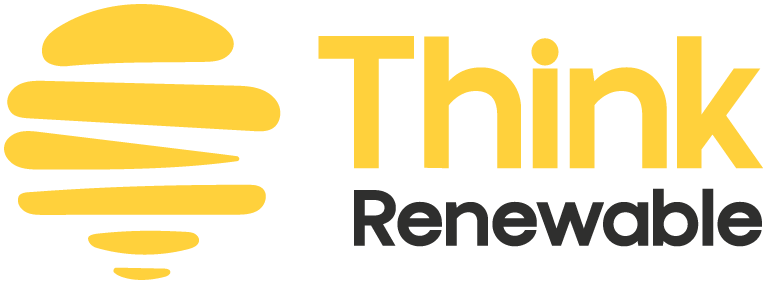Solar panels are extremely low maintenance, but they do require cleaning every now and again. This isn’t just for the aesthetic, but also for their performance – dust and grime, if left unchecked, can reduce PV performance by as much as 50%!
Now, we should point out that the Australian government doesn’t recommend people go onto their roof to clean their own panels (rather, that you book a professional to come and do it for you). But if you’d like to go it alone, we’ve provided the necessary tips and safety steps below. To learn more about getting a professional clean, click here.
How to clean your solar panels
Cleaning solar panels is a relatively easy job even without specialised tools. The trick is to do it regularly so that the dust, debris or gunk doesn’t get too bad, and to keep in mind both your own safety and the safety of your solar panels.
To clean your solar panels, you will need:
- The product guide supplied by your solar panel manufacturer (you can search online if you don’t have one, or contact our support team for assistance).
- A soft-bristled brush or soft cloth. A long-handled mop is even better.
- A hose.
- A squeegee.
Cleaning your panels
1) First, read the manufacturer’s guide to ensure you fully understand the cleaning dos and don’ts of your specific panels, including how to safely shut them down for cleaning.
2) Before starting work, make sure you’re going to be safe while working at heights. If you can access your solar panels from the ground using a hose and long-handled brush, that is ideal. Otherwise, consider what appropriate PPE you can access to ensure your safety on the roof (such as a harness) – keeping in mind making the roof wet may make it more slippery than you’re used to. SafeWork Australia has recommendations to guide you.
- Note: Feeling uncertain? Don’t take the risk if you aren’t confident. Click here for information on how to hire a professional solar panel cleaning service.
3) Before commencing work, switch off the solar system to reduce electrical hazards.
4) To start the cleaning process, first rinse your solar panels with a regular garden hose. This will remove loose dirt and debris, making cleaning a lot easier. Don’t use a pressure washer or high-pressure hose, as it may damage the sensitive solar cells within your panels.
5) Use a soft-bristled brush, soft cloth or your long-handled mop to apply water to your solar panels and wipe off the rest of the debris or build-up. Scrub gently.
6) Rinse again and dry immediately with a squeegee (or chamois) to remove streaks.
7) Inspect your panels to check that you’ve gotten all the build-up.
Cleaning your solar panels: Things to think about
What time of day is best to clean solar panels?
It’s generally best to clean your solar panels in the early morning, that way there’s no direct sunlight on your roof and it isn’t too hot. In the morning, dew may also have settled on the panels, softening the grime – making it easier to clean.
Heat can make your water evaporate too quickly, leaving streaks. Pouring cold water on a very hot solar panel can also cause it to crack.
What weather is best for cleaning solar panels?
If you have the option, try to clean your solar panels on a cooler or overcast day. As we mentioned above, direct heat can make it harder and less safe to clean your solar panels – not to mention the risk that heat poses to your own health, especially on a metal roof.
How often should I clean my solar panels?
Consider cleaning your solar panels at least twice a year, that way the dirt and grime won’t have a chance to build up to the point where it is more difficult to clean them.
Signs your solar panels need to be cleaned
There are a few common signs that signal it’s time to organise getting your solar panels cleaned:
- There is visible dirt, dust or grime on the panels.
- You’re experiencing a consistent drop in performance.
- You’re noticing more insects and pests around your panels.
Solar panel cleaning in a coastal area
Salt corrosion and sea grime are added risks of living in a coastal area. Salt build-up, if left to accumulate, can reduce the efficiency of your panels just like dust and debris, with the added risk that it can also corrode the metal frame.
If this is relevant to your property, consider cleaning your solar panels more frequently than twice a year – for example, seasonally. And if you spot any signs of corrosion, or just aren’t sure, book a professional solar panel servicing to have a professional come and take a look.
Solar panel cleaning in a dusty area or the Outback
Dust is a major problem in certain parts of Australia, and will mean you need to clean your solar panels more frequently. If you live in the Outback, or anywhere else with a lot of dust, consider inspecting your panels more frequently and rinsing them whenever it looks like it has built up.
How to get your solar panels professionally cleaned
Professional solar panel installers like the team at Think Renewable can come to your home to provide necessary inspection, maintenance and cleaning services.
You don’t need to take the risk of going up on your roof or washing your own solar panels. We have qualified electricians stationed across the country who can not only clean your solar system for you, but check for corrosion, assess faults and replace any broken parts as required. The process is quick and easy, and helps to guarantee the longevity of your system.
Want to learn more? Check out more about our solar servicing, or contact us to book an appointment.






